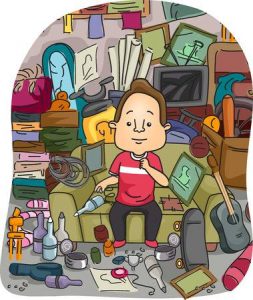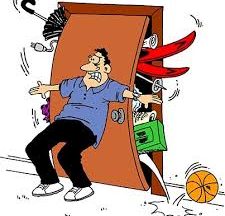 December 2019
December 2019
Hoarding is one of the more challenging condo community problems to address. It is an illness, a nuisance to residents and a safety hazard. Any community of more than 20 units likely has at least one hoarder. Protecting the health and safety of the community, while showing compassion to a hoarder, can be a difficult undertaking.
Hoarding is an emotional disorder affecting an estimated five percent of the population. Problems may be unseen, hidden behind closed doors for years. Afflicted individuals are unaware they have a problem. Awareness may begin with a routine safety inspection denoting excessive clutter, odour complaints from neighbours, pest infestations or clutter extending to hallways. By this time it has become a problem that should not be ignored.
Traditional condo management approaches are unlikely to be effective. Notices requiring a hoarder to change their ways or clean up the space will fail because the hoarder is unable to do so. They suffer from a disability that makes them unable to respond as expected.
Hoarders may resist what they view as an invasion of privacy and an intrusion into their home. Removing a hoarder’s personal possessions may be viewed by them as destruction of personal property. Building residents will be concerned about health, a dangerous situation, safety, and nuisance concerns. Resolving the concerns of all parties is not easy. Hoarders may sue the board for removing or destroying treasured possessions. Owners who are harmed or whose property is damaged because of a hoarder may sue the board for failing to address a dangerous situation of which board members were aware.
There are no easy solutions.
The first step to resolution should be to make a hoarder aware of the problem and have them participate in the solution. This requires a non-threatening approach. Speak with the resident and explain the need to keep doors closed or the fire hazard. Offer to assist with the clean-up, possibly by referring them to a service that can assist. Perhaps providing a storage space may offer a partial solution.
Escalation may be necessary if the problem is not resolved in a reasonable period of time. It may be necessary to contact family or local service agencies. If the problem has become sufficiently serious, contact local health and safety agencies. They may find it necessary to issue an order compelling clean-up and restoration of the unit.






